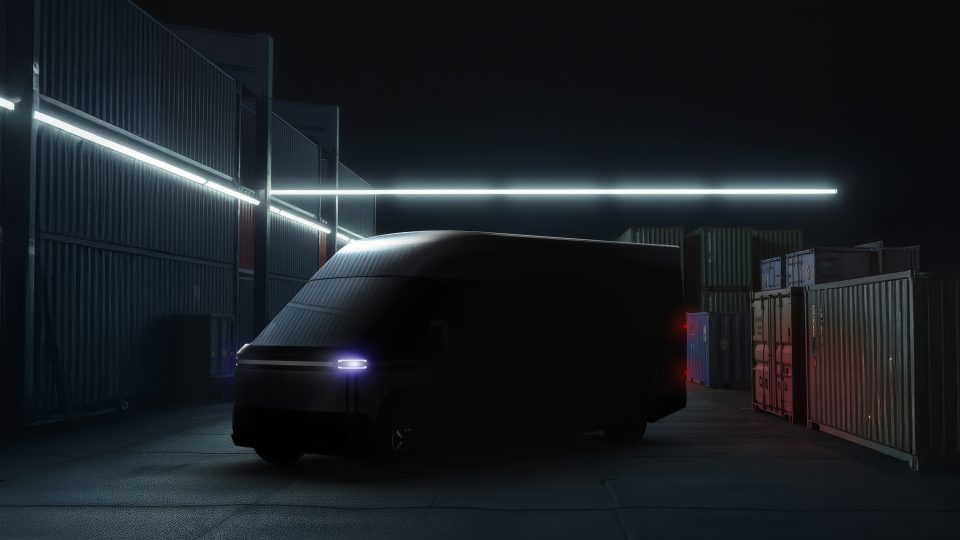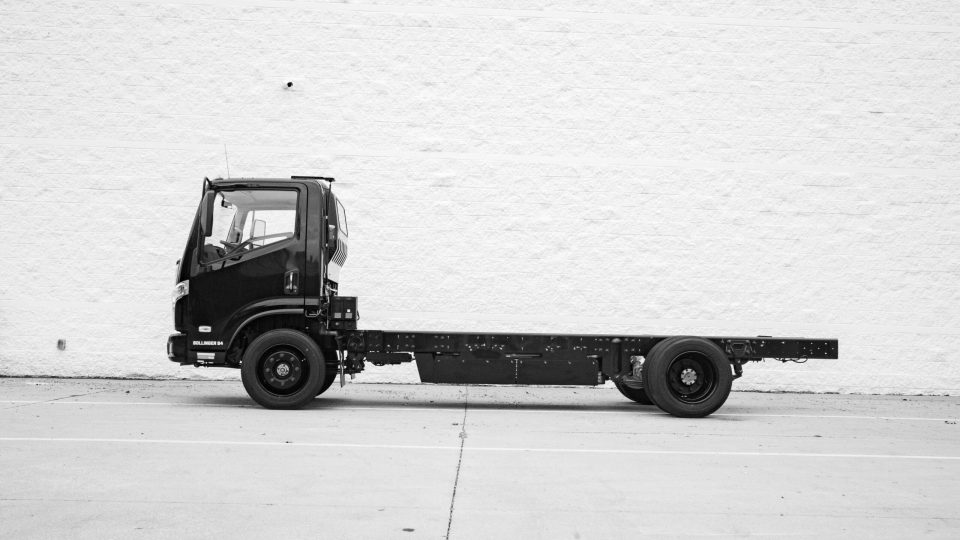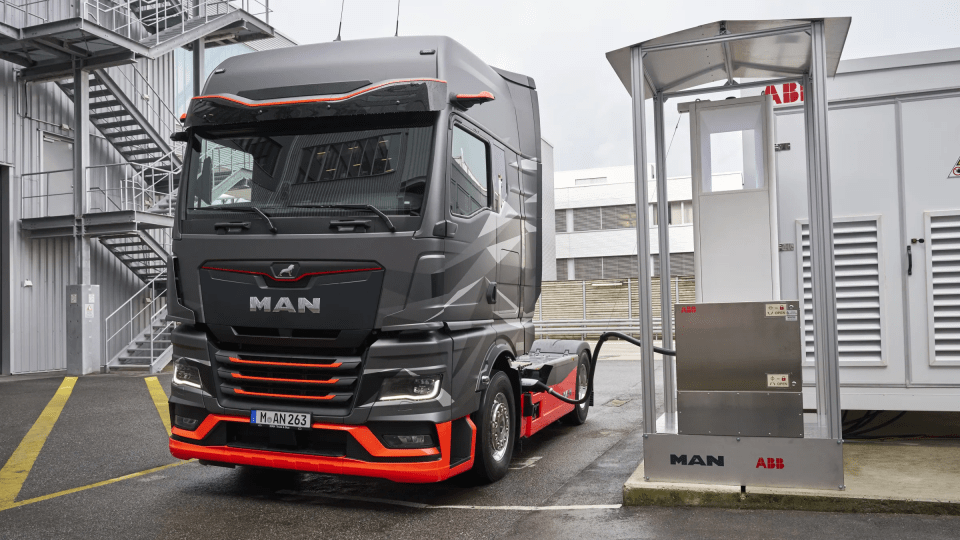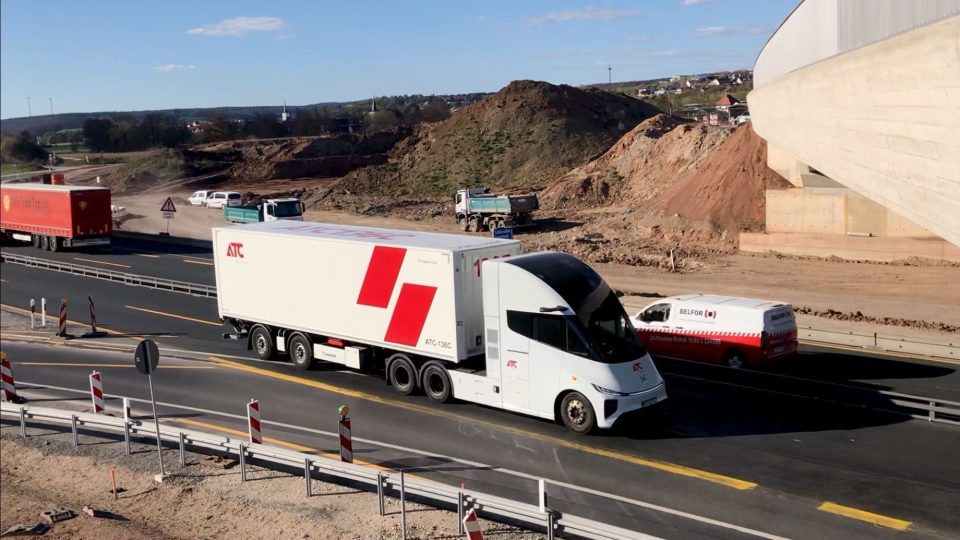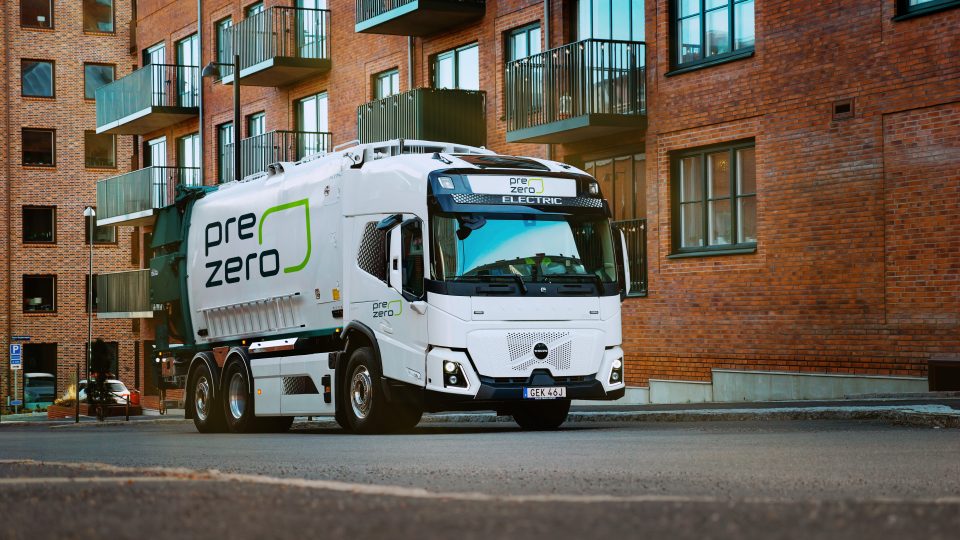Volkswagen e-Delivery is the first full-electric truck ever produced in Brazil
The vehicle is already available for pre-orders within the LATAM market. According to the manufacturer, some quite important deals have been signed with customers like Ambev, Coca-Cola FEMSA Brasil and JBS. Ambev, in particular, recently placed its first firm order, for 100 units, whose delivery began last June.
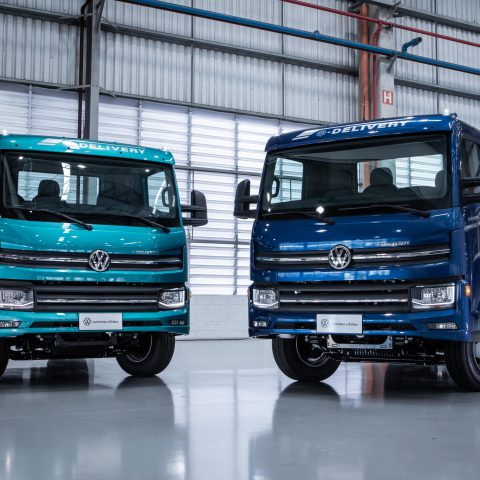
With a digital event, Volkswagen Caminhões e Ônibus introduced today the e-Delivery, the first full-electric truck ever designed, developed and manufactured in Brazil. It is a light urban electric truck fully powered by electric energy available in two different versions, with 11 and 14 tons of gross vehicle weight.
The vehicle underwent to more than 400 thousand kilometers of tests and the full dedication of a team formed by 150 Brazilian engineers and technicians, as underlined during the official launch by Volkswagen Caminhões e Ônibus, which is part of the Traton Group.
Promoting the use of increasingly renewable and clean energies
«The future has come», said Roberto Cortes (pictured below), president and CEO of Volkswagen CO. «More than selling products or solutions in services, our purpose is to combine the transport of people and goods with the use of increasingly renewable and clean energies. This is what we have been doing throughout our 40-year history (Volkswagen CO dates back to 1981, ed), researching different energy matrices, respecting the environment and building a legacy for society. And that now culminates in the arrival of e-Delivery».
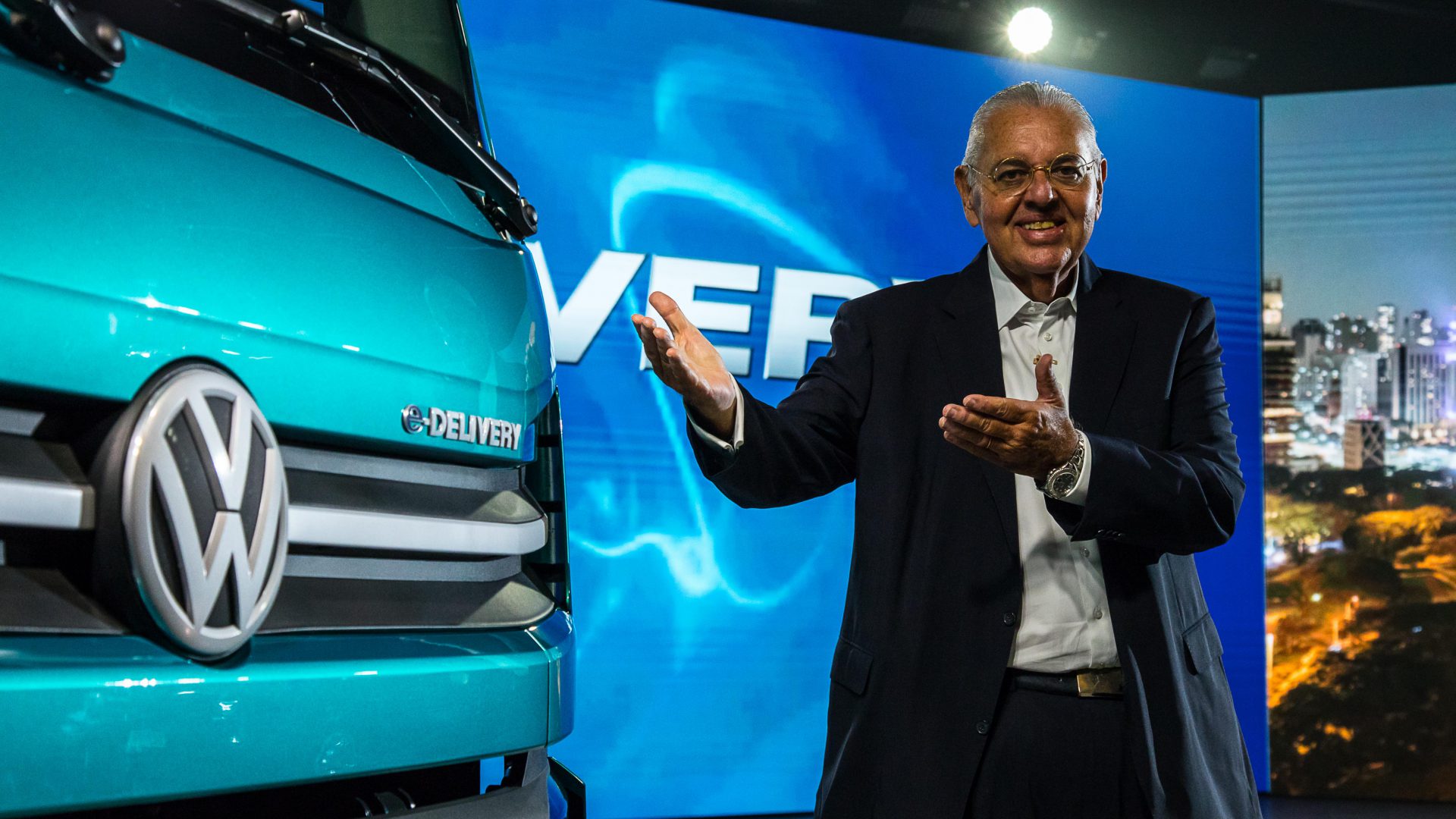
Volkswagen e-Delivery: pre-orders made by major customers
The vehicle is already available for pre-orders within the LATAM market. According to the manufacturer, some quite important deals have been signed with customers like Ambev, Coca-Cola FEMSA Brasil and JBS. Ambev, in particular, recently placed its first firm order, for 100 units, whose delivery began last June.
It is quite interesting to notice that Volkswagen CO has set a partnership with some of the largest electromobility companies in the world, ensuring convenience and efficiency for the e-Delivery customers: from assembly to charging infrastructure and vehicle battery lifecycle management, integrating the entire supply chain. The Chinese CATL for batteries, the global companies Weg as for electric motors and other primary brands such as Meritor or Bosch for key components are involved in the project, as well as Siemens and ABB with agreements on charging infrastructure. In addition to Moura, as mentioned in this post.
300kW power from the electric motor
The lightest model in Volkswagen’s electric family is equipped with an engine that delivers 300kW with a maximum torque of 2,150 Nm from zero rotation. Equipped with standard pneumatic suspension, it meets the most varied urban applications and has six battery modules and, optionally, three modules, according to the autonomy required for the operation.
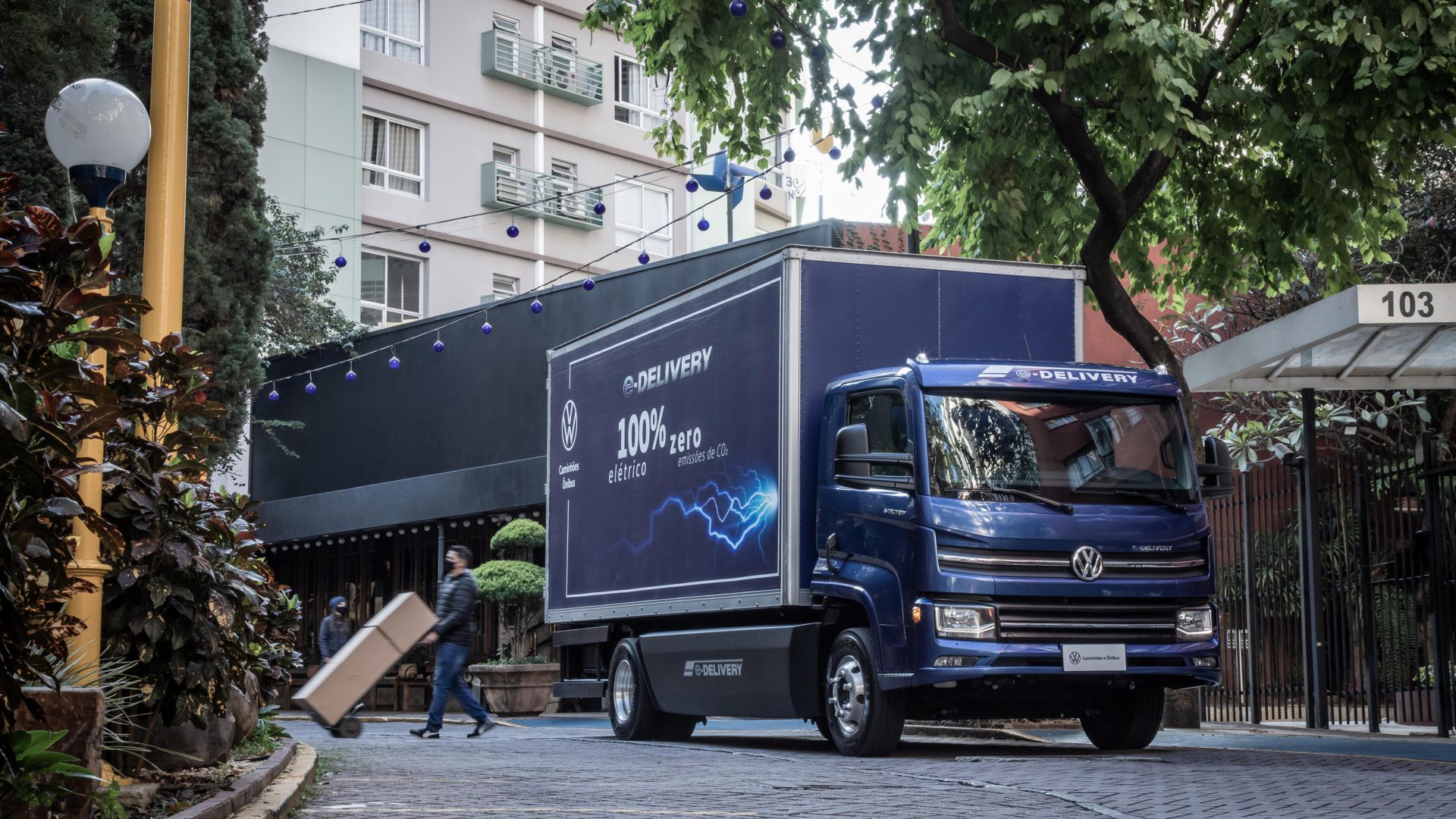
It has a gross vehicle weight of 10,700 kg and its maximum payload capacity, added to the body, reaches 6,320 kg.
The other model is the e-Delivery 14 tons 6×2. It can receive six or three battery modules depending on the customer’s wishes, while the gross vehicle weight reaches 14,300 kg.
80% of the charge completed in about 45 minutes
Around 100 new sensors detect information from the field, while torque inverters regulate the energy flow. Depending on the battery and charging setup, 80% of the charge can be completed in about 45 minutes.
The new e-Delivery models have reinforced chassis and improved interiors, while an energy recovery system recharges the batteries when breaking or slowing down.
Last but not least, Volkswagen CO provides exclusive commercial consultancy, new Volks|Total e-Prev and e-Prime maintenance plans, in addition to a Volks|Care service and after-sales structure, specially designed to ensure vehicle availability and reduce its operational cost.




